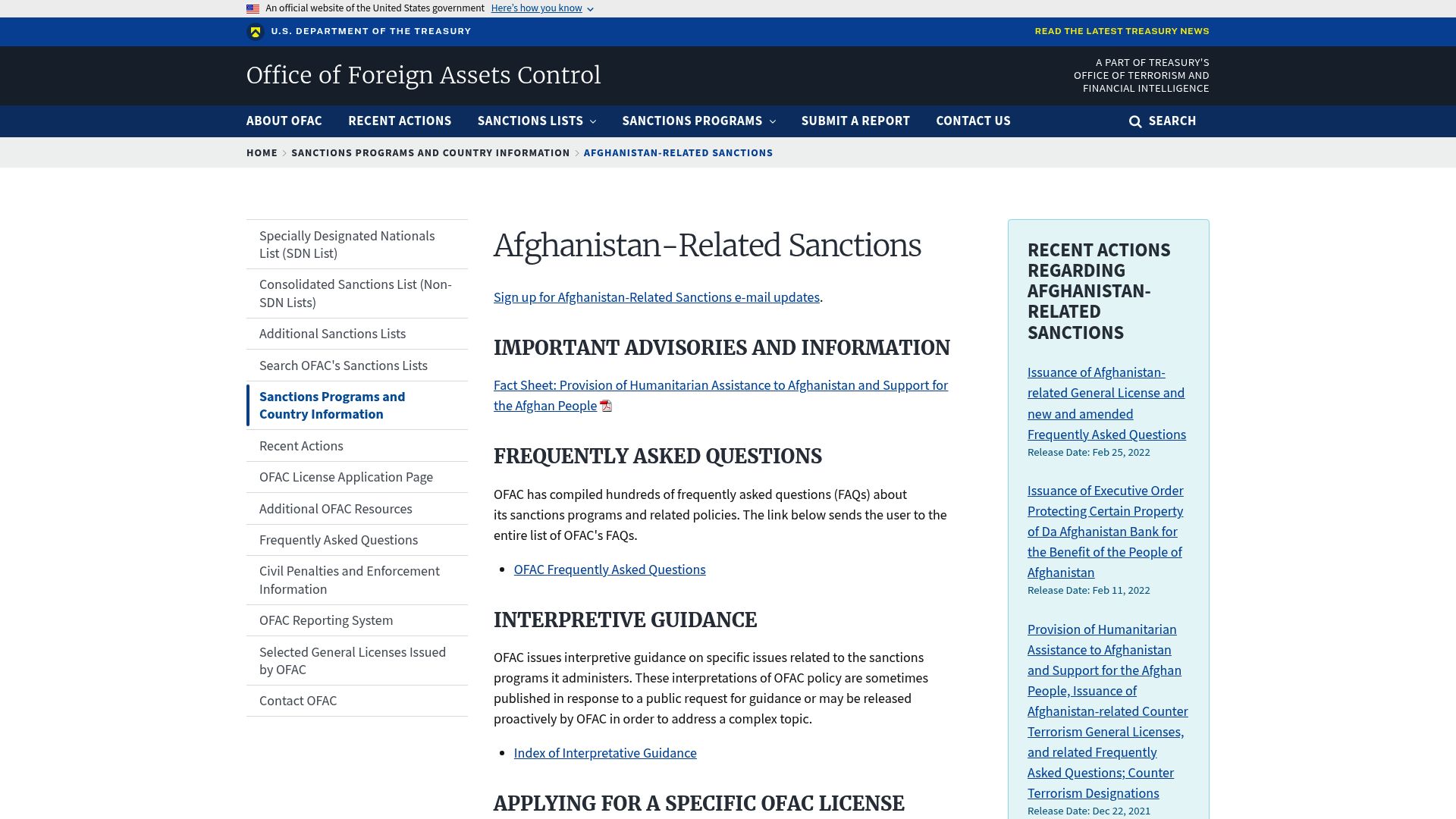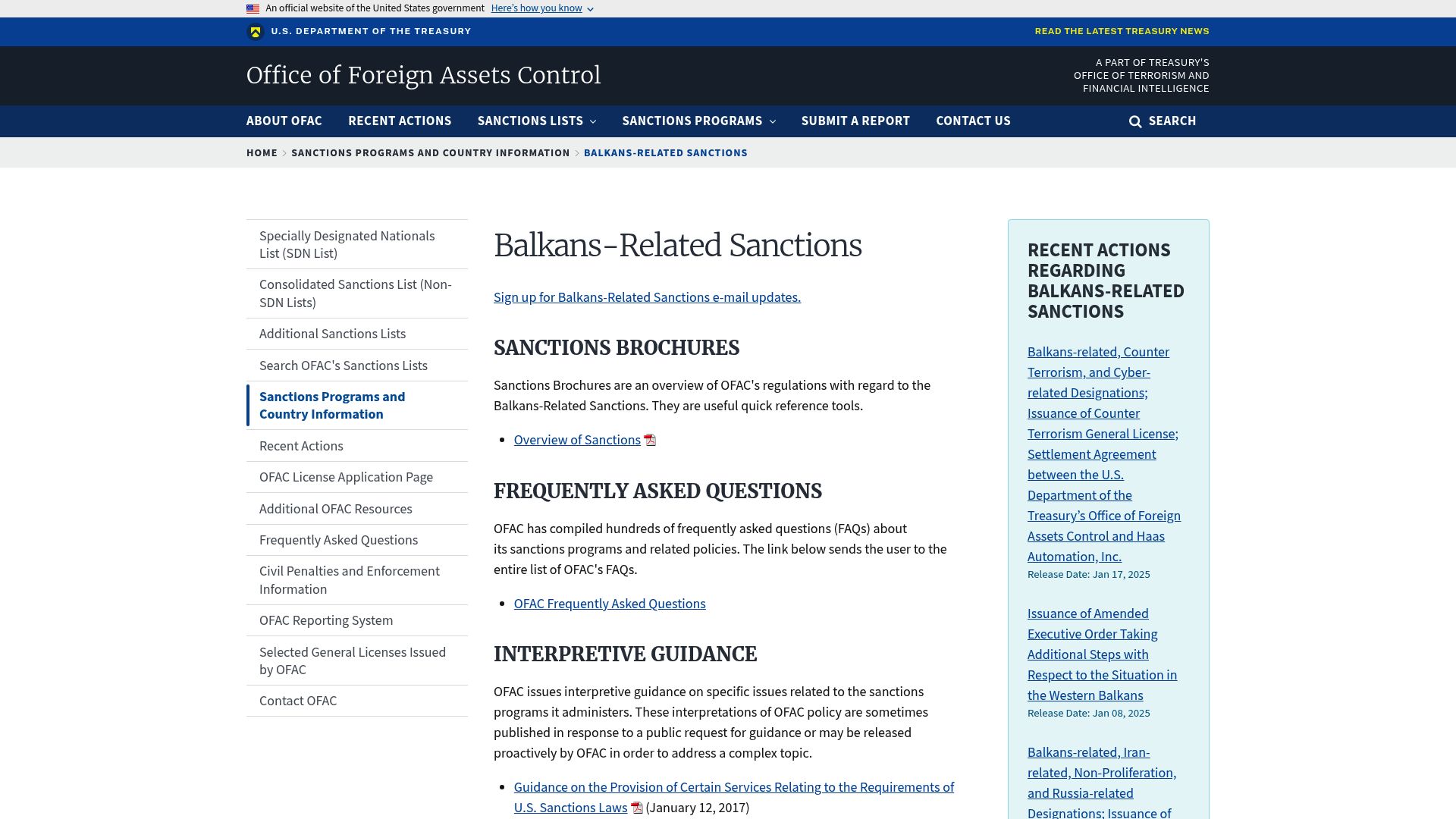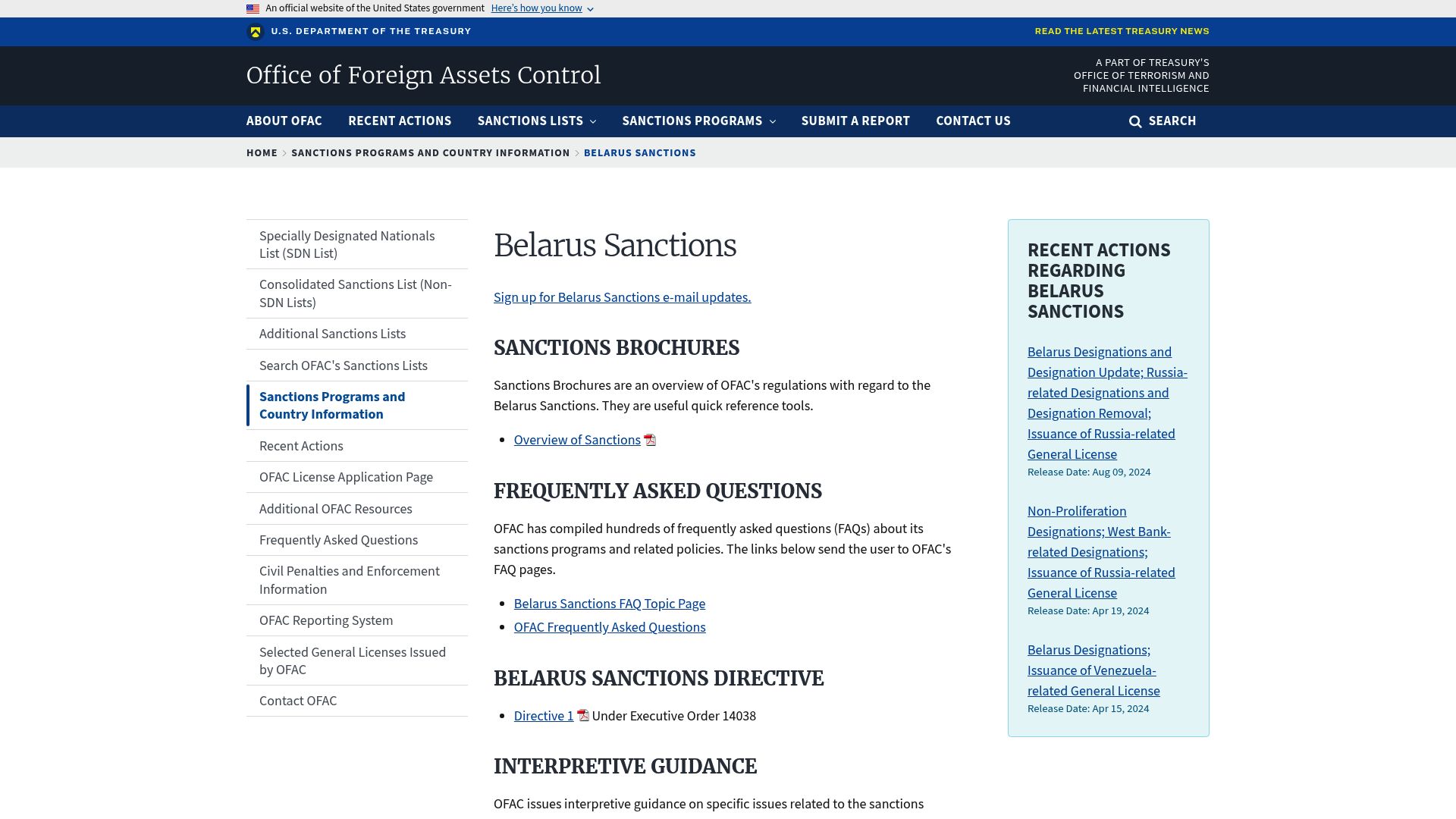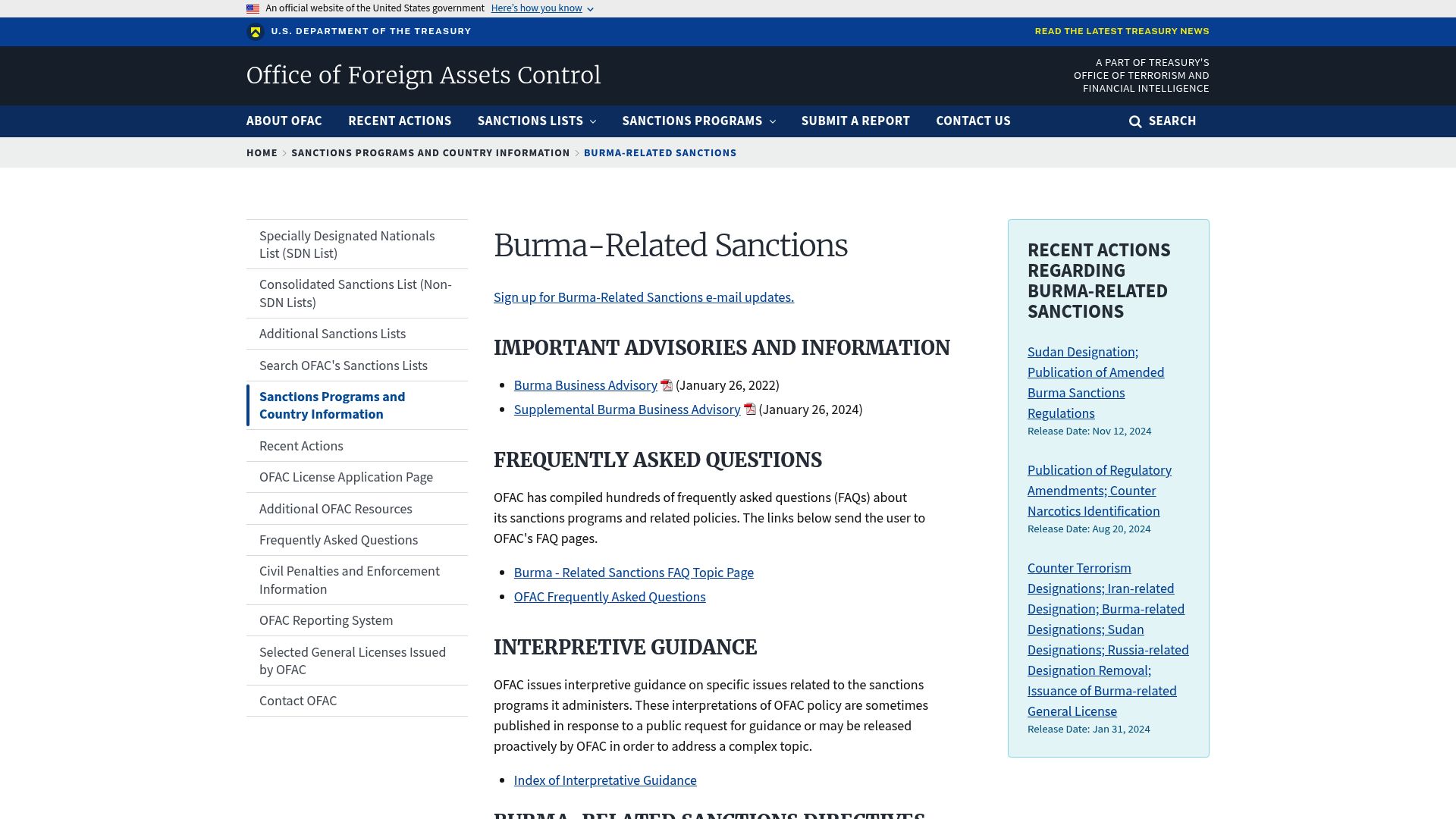Understanding OFAC Sanctions in 2025: A Comprehensive Guide

“OFAC sanctions” are more than just a tool in the U.S. foreign policy arsenal; they play a critical role in safeguarding national security. These sanctions, crafted by the Office of Foreign Assets Control (OFAC), aim to curb activities that threaten international peace and U.S. interests. By restricting trade and financial transactions, OFAC sanctions target countries, groups, and individuals involved in terrorism, drug trafficking, or human rights abuses.
Understanding OFAC Sanctions
OFAC sanctions are used by the U.S. to address issues that threaten global peace and security. You might wonder, what exactly are they? Well, these are penalties applied to countries, organizations, or individuals to restrict their economic activities. The goal is to deter actions like terrorism, human rights abuses, and more, without resorting to military intervention.
The Office of Foreign Assets Control (OFAC) plays a crucial role in this process. Think of OFAC as the watchdog ensuring that these sanctions are properly enforced. They monitor compliance and update the sanctions lists to reflect changing geopolitical landscapes. They’re like the guardians of economic sanctions, working tirelessly to protect U.S. interests.
When it comes to the types of sanctions, there are two primary categories: comprehensive and selective. Comprehensive sanctions are like a blanket ban, prohibiting all trade and financial transactions with a specific nation or entity. Selective sanctions, on the other hand, target specific individuals or sectors, allowing for more nuanced control. Understanding these distinctions is key to grasping how OFAC sanctions operate and why they’re essential.
Key OFAC Sanctions Programs in 2025
The landscape of OFAC sanctions is ever-evolving, with programs targeted at maintaining international order and safeguarding U.S. interests. In 2025, these sanctions programs are crucial in shaping global politics and trade. By restricting economic interactions, they influence countries’ behaviors, fostering compliance with international norms. As a result, they serve as essential tools in the diplomatic arsenal, helping to mitigate conflicts without direct confrontation.
1. Afghanistan-Related Sanctions
The Afghanistan-related sanctions aim to address ongoing instability and security challenges in the region. Recent updates focus on restricting financial flows to entities undermining peace processes. These sanctions are designed to cut off resources to groups that threaten security, thus promoting stability and supporting humanitarian efforts. By doing so, the U.S. hopes to encourage cooperation and peace in a region fraught with challenges.

2. Balkans-Related Sanctions
Sanctions targeting the Balkans are crucial in addressing regional tensions and fostering reconciliation. These measures focus on individuals and groups involved in corruption and destabilizing activities. By imposing these OFAC sanctions, the U.S. aims to promote accountability and support democratic governance. The implications of these sanctions are significant, as they push for transparency and stability, critical for long-term peace.

3. Belarus Sanctions
The Belarus sanctions have seen significant updates, reflecting the changing political landscape. These sanctions aim to pressure the Belarusian government to respect human rights and democratic principles. By targeting key individuals and entities, the U.S. seeks to curb repressive actions and encourage dialogue. Such measures are vital in maintaining international pressure and supporting the Belarusian people’s aspirations for freedom and democracy.

4. Burma-Related Sanctions
Burma-related sanctions are focused on addressing human rights abuses and promoting democratic transition. By targeting military leaders and their financial interests, these OFAC sanctions aim to weaken the regime’s grip on power. The effects are profound, as they help in rallying international support for democratic forces in Burma. These sanctions are pivotal in pushing for reforms and supporting the country’s path to democracy.
For more on recent updates and modernization efforts in OFAC sanctions, check out the Modernizing Treasury’s Office of Foreign Assets Control.

Navigating OFAC Sanctions Lists
Accessing and interpreting OFAC sanctions lists might seem daunting at first, but it’s crucial for compliance. You can find these lists on the U.S. Treasury’s website, where they are regularly updated. The key list to know is the Specially Designated Nationals (SDN) List. This list includes individuals and entities subject to sanctions, effectively blocking their assets and prohibiting U.S. persons from dealing with them. Understanding who is on this list is essential, as it helps prevent inadvertent violations of OFAC regulations. For a deeper dive into the global financial landscape and sanctions, check out this analysis.
Sanctions List Service Features
The OFAC Sanctions List Service offers several features that make navigating sanctions data much easier. Here’s what you can expect:
- Customization Tools: Tailor the data to your needs with filters and search functions. This helps in pinpointing specific entities or regions.
- Regular Updates: Stay informed with automatic updates, ensuring you’re always compliant with the latest regulations.
- User-Friendly Interface: Navigate easily with a layout designed for both newcomers and seasoned professionals.
These features enable businesses and individuals to stay on top of their compliance game, ensuring they meet all OFAC sanctions requirements.
Compliance and Legal Implications
Understanding the importance of compliance with OFAC sanctions is crucial for businesses and individuals alike. Non-compliance can lead to severe legal consequences, including hefty fines and reputational damage. It’s essential to recognize that OFAC sanctions are not just guidelines but legal requirements that demand strict adherence.
Violating these regulations can result in penalties ranging from financial fines to criminal charges. Companies might face millions in penalties, and individuals could encounter jail time. It’s a risk no one should take lightly. To avoid these dire outcomes, ensuring compliance with OFAC sanctions must be a top priority.
Here’s how you can ensure compliance effectively:
-
Stay Informed: Regularly update yourself on the latest sanctions and changes. This can prevent unintentional breaches.
-
Implement Internal Controls: Develop a robust compliance program that includes employee training and regular audits.
-
Utilize Compliance Tools: Use specialized software to automate the monitoring of transactions and entities against OFAC sanctions lists.
-
Consult Experts: Sometimes, professional guidance is necessary. Don’t hesitate to reach out to legal experts for advice.
For more guidance, check out strategies for adapting to OFAC’s new recordkeeping standards in this helpful article.
By taking these steps, you’re not just protecting yourself from legal trouble but also contributing to global peace and stability.
Recent Developments and Updates
In 2025, keeping up with recent changes in OFAC sanctions programs is essential. These updates often reflect shifts in global politics and emerging threats. You might wonder what’s driving these changes. Well, geopolitical factors play a huge role. For instance, tensions in regions like Eastern Europe and the Middle East lead to more stringent sanctions. These are aimed at curbing activities that threaten peace.
Key Updates Include:
- Emerging Threats: New OFAC sanctions target cyber threats and digital currencies, responding to the evolving nature of global risks.
- Economic Adjustments: As economies shift, so do sanctions. OFAC sanctions are adjusted to reflect these changes, ensuring they’re effective in today’s market.
- Human Rights Focus: There’s a stronger emphasis on human rights, with sanctions targeting oppressive regimes and human rights abusers.
These updates are not just bureaucratic tweaks; they reflect a dynamic world where policies must adapt quickly. Staying informed about OFAC sanctions is crucial for anyone involved in international trade or finance. It’s like navigating a complex landscape where each decision can have significant global impacts.
Conclusion
Staying informed about OFAC sanctions in 2025 is more crucial than ever. As global dynamics shift, these sanctions serve as a vital tool in navigating international relations. They’re not just bureaucratic measures; they’re strategic instruments that help maintain global security and stability.
Understanding how OFAC sanctions impact economies and politics can guide you in making informed decisions. They influence trade, finance, and diplomacy, affecting everyone from large corporations to individual traders. By staying updated, you’re not just protecting your interests but also contributing to a safer world.
In essence, OFAC sanctions empower us to influence global behavior without conflict. They’re key to fostering a peaceful, stable international community. So, let’s stay informed and engaged, ensuring we’re part of the solution in maintaining global peace.
As we wrap up our exploration of OFAC sanctions in 2025, it’s clear that staying informed is crucial for navigating the complex landscape of global politics and trade. Understanding sanctions lists and ensuring compliance can safeguard your financial interactions and maintain peace of mind. But why stop there? With BlockGuard, you can take proactive steps to secure your blockchain transactions. It’s an intuitive tool that helps you verify wallet addresses, ensuring every transaction you make is safe and scam-free. Ready to protect your assets? Check your wallet now and step into a safer digital future.